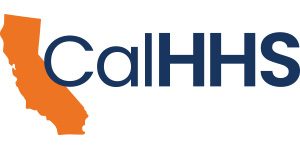
This past May, 300 students descended upon the UC Davis campus for 24 hours of “hacking for social good.” This was the first major collegiate hackathon at UC Davis run entirely by students. There were three different tracks: environment, health and wellness, and education. The California Health and Human Services Agency partnered with Hack Davis for the event.
The Davis student organizers put forth a compelling mission:
“We want people to build projects with a meaningful impact and hope to foster a community dedicated to social change. We find that most hackathons often don’t result with projects as practical solutions to specific societal problems and we’re looking to change that.”

A packed house inside the UC Davis ARC Ballroom
Companies like Synaptics, IBM, and AT&T took the opportunity to interact with the many bright computer science students in attendance. Informative and engaging workshops were held throughout the day and into the wee hours of the night, including a class on personal branding as well as “Ruby on Rails 101.” At the end of the weekend, 51 applications were created and submitted.
CHHS joined in to share about the data available on the CHHS Open Data Portal. Several groups of enthusiastic students were excited to check out the data available and tackle the health and wellness track.
A number of health-related apps emerged, including two using Amazon’s personal voice assistant, Alexa. One of these apps, called NutriCount, interfaces with the USDA’s API to access nutrition information and uses voice recognition to tell users about the nutrition content of the foods they ate. For the next iteration, the coders plan to provide healthy food recommendations as well.
With another health app, a team of UC Davis students tackled the problem of locating and identifying health providers in California. The app allows users to input their health plan and symptom to find the appropriate general or specialty care providers in their area. The app makes use of the Medi-Cal fee-for-service providers dataset available on the CHHS Open Data Portal, as well as other data sources from private health plans.

UC Davis freshmen of the “CA Health” team demoing their app
In developing this app, the coders found some quirks in the data, so the CHHS Open Data Team is taking their feedback to the state subject matter experts that can help make improvements to the data going forward. Data transparency can provide insight into data usability and quality, and participating in hackathons is a great way to help crowdsource the “hygiene” of the data.

